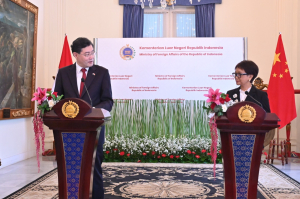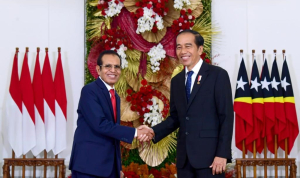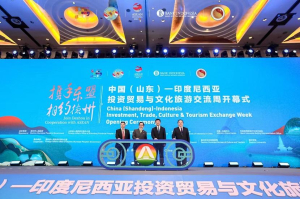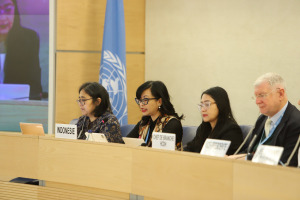Indonesia calls for action to help least-developed countries to deal with multifaceted challenges
Indonesia urged for the enhancement of global collaborations to assist the economic growth of the least-developed countries (LDCs) during the Fifth UN Conference on the Least Developed Countries (LDC5) in Doha from March 5 to 9, 2023.
The LDCs continue to encounter a variety of obstacles, including restricted production capabilities, insufficient financial capabilities, high levels of debt, and a shortage of technological resources, Indonesian Ambassador to Qatar Ridwan Hassan said in a statement on March 9, 2023.
Pandemic worsens situation
These countries' circumstances have worsened due to the COVID-19 outbreak as well as other challenges that are multi-faceted, such as climate change and weaknesses in food and energy systems.
Until now, there are 46 countries that fall into the LDC category, with 33 being African nations, 9 in Asia, 3 in the Pacific, and 1 in the Caribbean.
“The adoption of the Doha Program of Action 2022 is proof of our collective commitment to supporting LDCs. But we need to work hard to ensure its effective implementation," Hassan said, as quoted from kemlu.go.id.
3 key focus
Indonesia recommended the improvement of three factors, namely:
- Creating a conducive environment for development funding in LDCs
Now the LDCs are confronted with inadequate financial support, encompassing both foreign direct investment (FDI) and development assistance. Therefore, it is necessary for the global community to aid the LDCs by providing development assistance, investments, technical assistance, inventive funding approaches, and debt relief.
"Under the Indonesian Presidency, the G20 agreed to increase blended finance for developing countries, including LDCs," said Hassan.
- Advancing HR development in LDCs
The sizable youthful populace in LDCs is a significant resource that needs to be developed, including through high-quality and inclusive education and training programs.
Up until now, Indonesia has been actively providing capacity-building assistance to the LDCs.
- Strengthening North-South, South-South partnerships, and Triangular Cooperation
Indonesia emphasized that any collaboration should be based on the LDCs' requests and must embody the values of solidarity, inclusivity, equality, and ensuring that no one is left behind.
“The pandemic has taught us that no country can face global challenges alone. Solidarity, inclusivity, cooperation, and partnership are the keys to addressing global challenges. Let's use this opportunity to strengthen global partnerships to support LDCs," Hassan said.
UN LDCs progress
Since 1981, the UN Conference on the Least Developed Countries has taken place every 10 years with the goal of rallying worldwide assistance for the economic progress of LDCs.
Here are the key outcomes from every conference:
- First UN Conference on the Least Developed Countries (Paris, 1981)
- Established the concept of Least Developed Countries (LDCs)
- Adopted the "Programme of Action for the Least Developed Countries for the 1980s"
- Second UN Conference on the Least Developed Countries (Paris, 1990)
- Adopted the "Paris Declaration and Programme of Action for the Least Developed Countries for the 1990s"
- Established the Enhanced Integrated Framework (EIF) to support LDCs in trade-related matters
- Set a target of allocating 0.15-0.20% of developed countries' gross national product (GNP) as official development assistance (ODA) to LDCs
- Third UN Conference on the Least Developed Countries (Brussels, 2001)
- Adopted the "Brussels Programme of Action for the Least Developed Countries for the Decade 2001-2010"
- Focused on the importance of good governance, human rights, and social development in LDCs
- Established the International Trade Centre (ITC) to provide trade-related technical assistance to LDCs
- Fourth UN Conference on the Least Developed Countries (Istanbul, 2011)
- Adopted the "Istanbul Programme of Action for the Least Developed Countries for the Decade 2011-2020"
- Emphasized the need for LDCs to have sustained economic growth and to be integrated into the global economy
- Established the Technology Bank for the Least Developed Countries (TBLDC) to enhance science, technology, and innovation in LDCs.
Already have an account? Sign In
-
Start reading
Freemium
-
Monthly Subscription
30% OFF$26.03
$37.19/MonthCancel anytime
This offer is open to all new subscribers!
Subscribe now -
Yearly Subscription
33% OFF$228.13
$340.5/YearCancel anytime
This offer is open to all new subscribers!
Subscribe now






